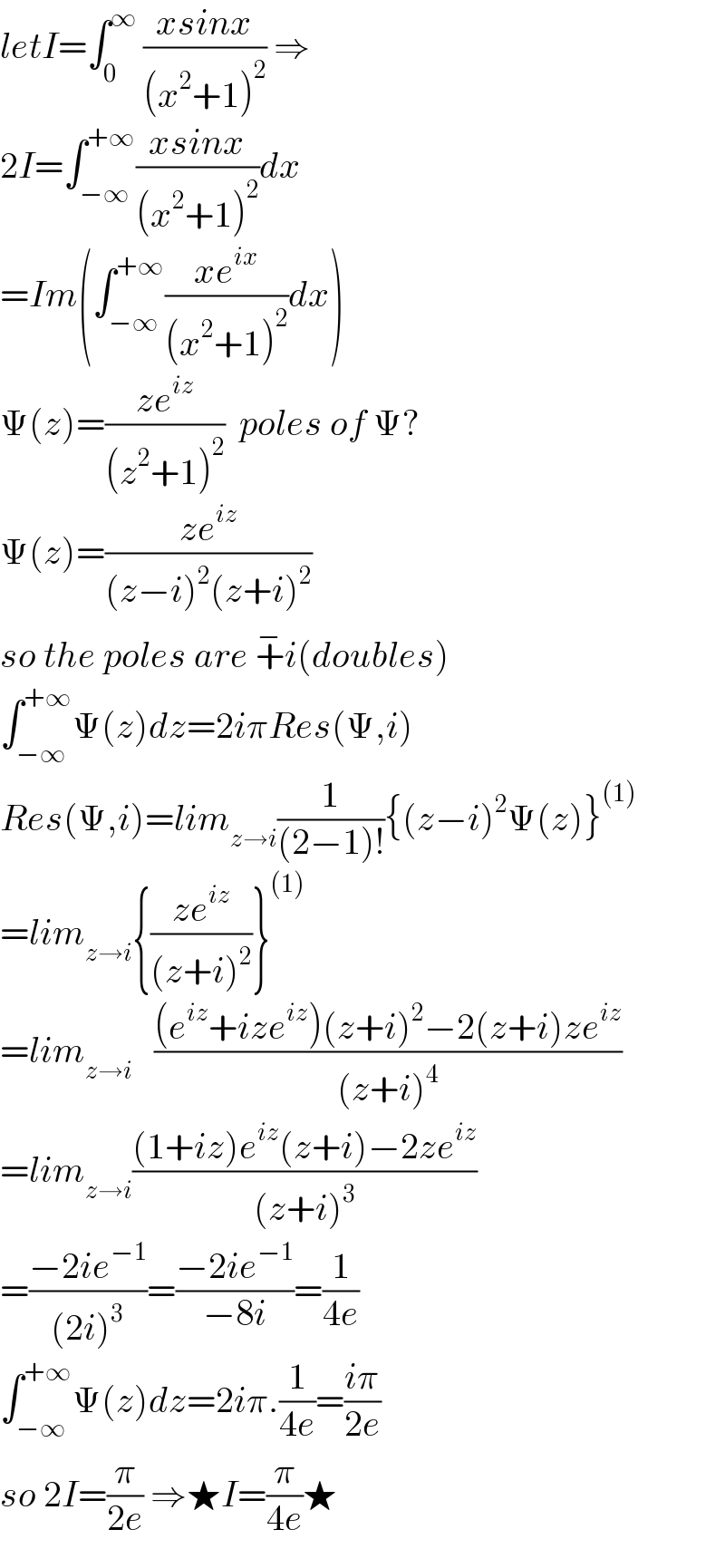
Question and Answers Forum
Question Number 175012 by lapache last updated on 16/Aug/22

Answered by Mathspace last updated on 16/Aug/22

Commented by Mathspace last updated on 16/Aug/22

Commented by Tawa11 last updated on 16/Aug/22

| ||
Question and Answers Forum | ||
Question Number 175012 by lapache last updated on 16/Aug/22 | ||
 | ||
Answered by Mathspace last updated on 16/Aug/22 | ||
 | ||
| ||
Commented by Mathspace last updated on 16/Aug/22 | ||
 | ||
Commented by Tawa11 last updated on 16/Aug/22 | ||
 | ||